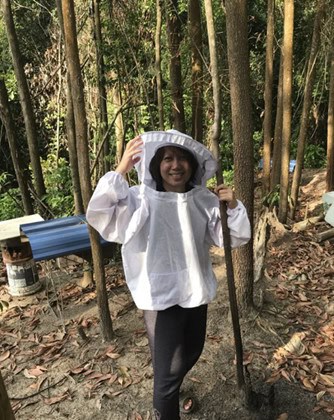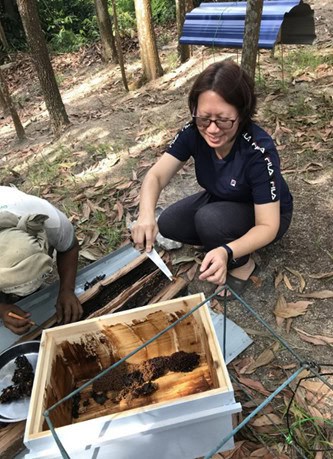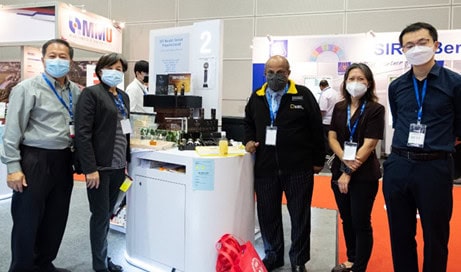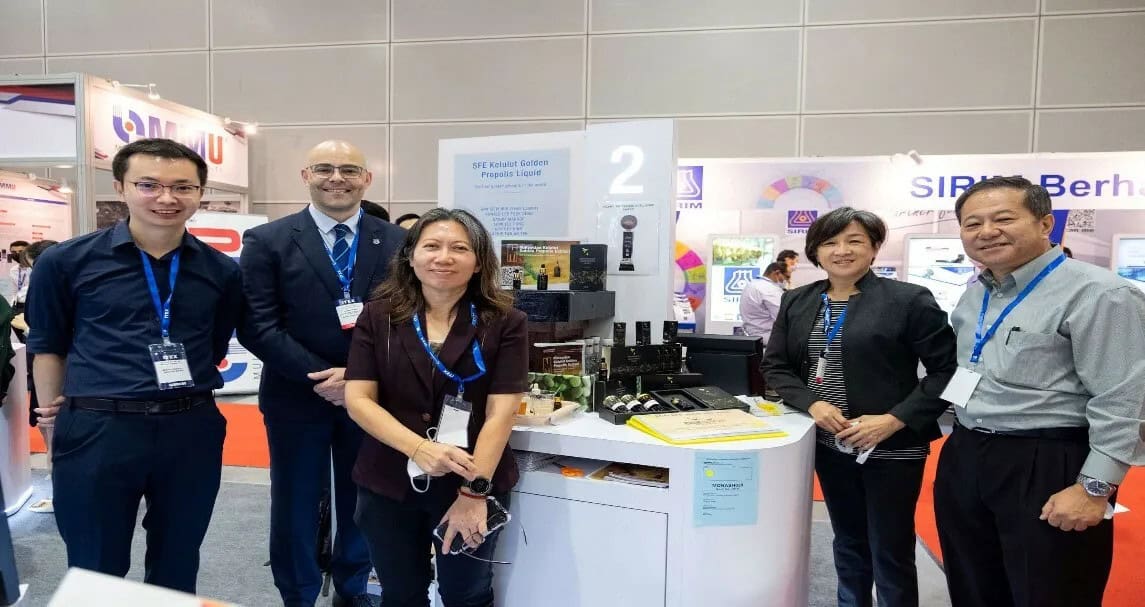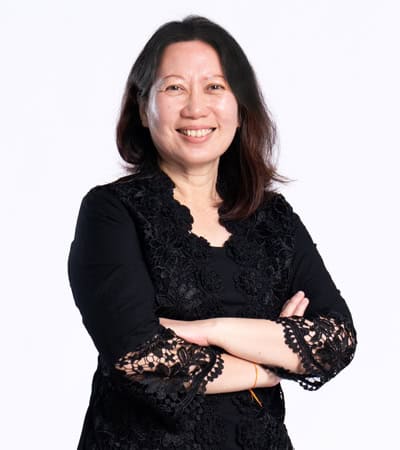
Academic and Research Journey
Congratulations on being recognised among the world’s top 2% of scientists! What does this achievement mean to you and to the University of Cyberjaya?
This achievement reflects not only my personal dedication but also the belief that anyone can excel globally with discipline and consistency. It also brings recognition to the University of Cyberjaya (UoC), showcasing our commitment to research excellence.
This year marks my fourth consecutive year being listed among the world’s top 2% of scientists. To me, there is nothing extraordinary about it — the key lies in maintaining focus on one’s ultimate goal. Develop small, meaningful habits that align with that goal, because time is limited. Choose your habits wisely. As the saying goes, tiny drops of water will eventually fill a barrel.
How did your early education in Manchester and your research training at USM shape your career in pharmacology?
My early education taught me independence, curiosity, and creativity in problem-solving. Being alone in a foreign country, the only way forward was to persevere and succeed. Coming from a low-income family and receiving a JPA scholarship, I knew I could not return to Malaysia as a failure — success was my only option.
I also learned the importance of teamwork and communication. We must make friends, learn from others, and embrace diversity — because everyone has unique strengths. My journey is a testament to perseverance and determination in the face of adversity, and I hope it serves as motivation for others.
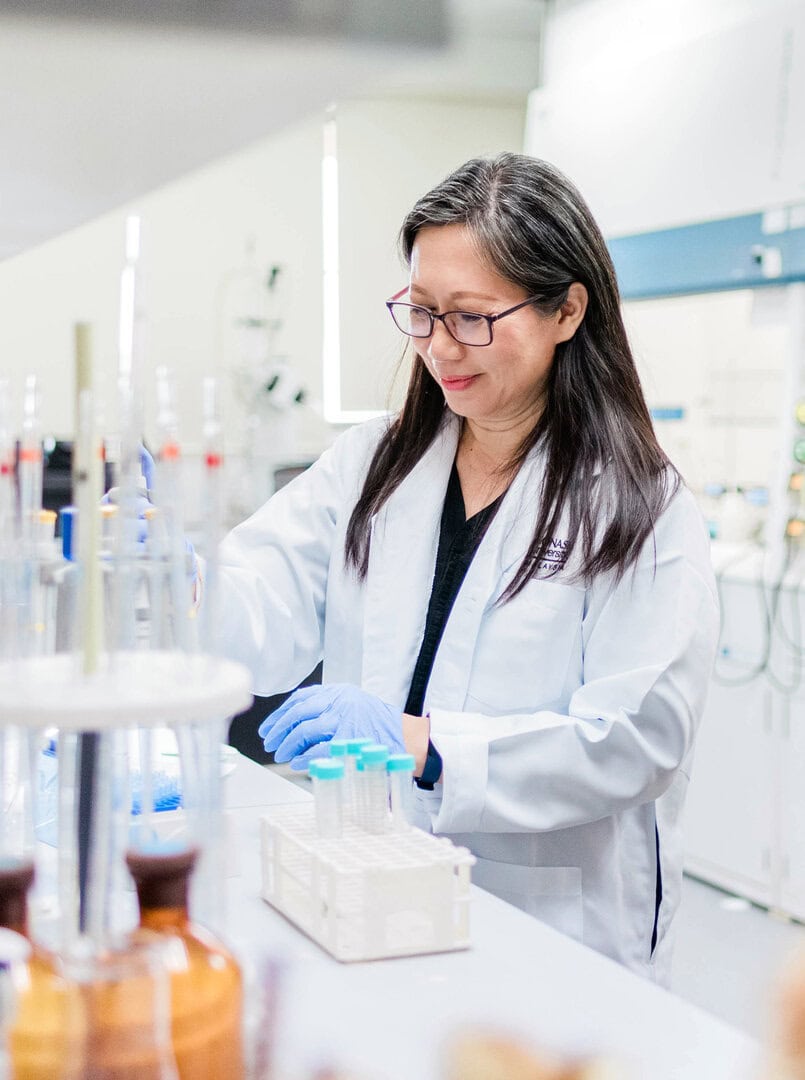
What is your vision for the Faculty’s growth and its contribution to UoC’s research excellence?
My vision is to foster a research culture that prioritises solving real-world problems rather than fulfilling KPIs or promotion requirements. When research is done with sincerity and purpose, it becomes more meaningful, enjoyable, and sustainable — and results will naturally follow.
I envision a faculty where every member is passionate about their research, where mentorship and collaboration are valued, and where collective efforts drive the university’s reputation for research excellence. This is not merely an aspiration, but a shared goal that we are actively working towards.
What inspired your interest in pharmacogenetics and pharmacokinetics?
Interestingly, pharmacogenetics and pharmacokinetics were not my initial areas of interest. I was more drawn to natural product research. However, in the 1990s, it was difficult to find supervisors who were actively engaged in research. I was fortunate to find one at USM who had a grant ready and an interest in pharmacogenetics, so my PhD journey began there. I view my PhD as my “first licence” to conduct research. Life does not always present perfect opportunities — sometimes, you must seize what comes your way and chart your course later. My passion for natural product research has remained central throughout my career.
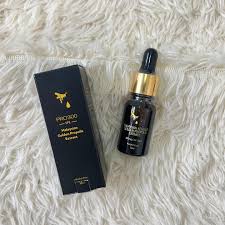
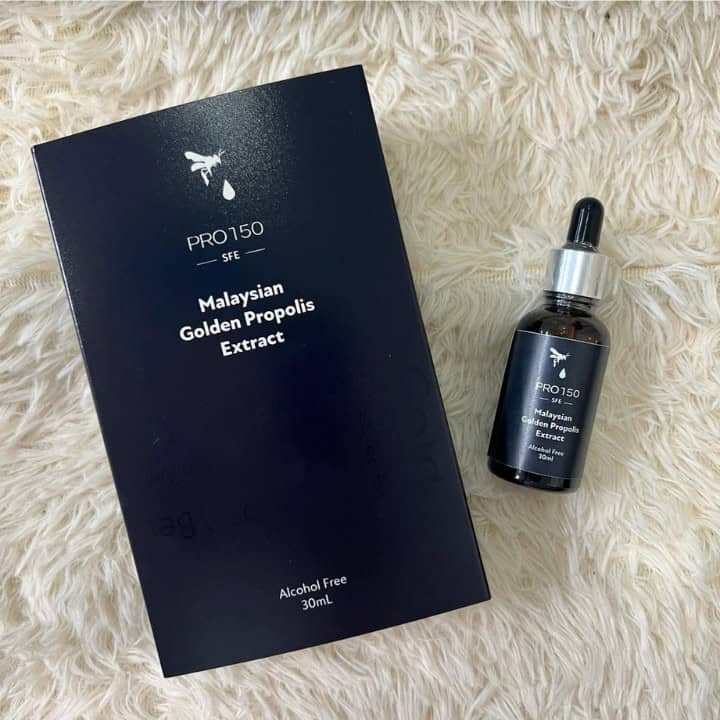
Your research on honey and propolis has gained international recognition. What sparked your interest in studying these substances?
Malaysia is blessed with diverse natural products that remain underexplored despite their immense potential. For generations, our ancestors used natural remedies effectively — they must have worked for these traditions to survive. My goal was to contribute scientific validation to these age-old practices.
Honey, for instance, has been used to treat coughs and possesses antimicrobial properties. Yet, 80–90% of Asian honey, including Malaysian honey, is fake. My early research focused on authenticating local honey through rigorous chemical analysis, and we were the first to report the phenolic and flavonoid composition of Malaysian honey. We also identified nine new compounds, earning the Journal of Food Science’s “Most Cited Paper Award.”
As for propolis — the waxy substance produced by bees — it is rich in antioxidants, but many farmers discard it, unaware of its value. Working with local honey producers, we developed a new propolis formulation suitable for export. This formulation preserved antioxidant properties while improving palatability, offering farmers an additional source of income. The product later won an ITEX Innovation & Technology Award in 2024.
When research solves real-world problems, it becomes deeply meaningful and naturally motivating.
How do you ensure that research excellence complements teaching quality and student engagement at UoC?
Lecturers should bring their research into the classroom to make learning more dynamic, personalised, and current. This integration distinguishes university lecturers from school teachers — it allows us to use real data, analyse current trends, and guide future directions in our field.
My advice is simple: do everything with passion, whether it is research, teaching, or student engagement. Passion transforms ordinary work into lasting impact.
Research Focus and Projects
How do you plan to nurture a stronger research culture within the Faculty, particularly among early-career academics and students?
Mentorship is key. Helping others, even if it takes just five or ten minutes of your time, can save them days of effort. Sharing knowledge selflessly builds a supportive academic ecosystem.
Equally, young academics must cultivate curiosity and an eagerness to learn. Always ask “why” and “how can this be done better?” Continuous questioning and improvement create an environment where mentorship thrives and everyone feels valued as part of a collective mission.
Collaboration is key to impactful science. What kinds of partnerships do you hope to strengthen at UoC?
I have been researching honey and propolis since 2009 — more than 15 years now. At UoC, I plan to expand this work into other natural products. Together with my colleagues in the Faculty of Pharmacy, we have begun collaborating with researchers from Fukuoka University, Japan. This collaboration also serves as a form of mentoring, and we are excited about where this journey might lead.
Could you share some of the surprising findings from your current research on honey?
We often overlook everyday items that hold remarkable potential — honey is one such example. Building on traditional wisdom that honey has medicinal properties, I explored its modern applications.
We discovered that sterilised honey can be used as a wound dressing or transdermal patch due to its high osmolarity, which draws out moisture. Honey also prevents radiation-induced mucositis — breast cancer patients undergoing radiotherapy can keep a tablespoon of honey in their mouths during treatment to prevent burns, as the heat is absorbed by the honey instead of the mucosa.
However, we also found that honey contains a potentially harmful compound called 5-hydroxymethylfurfural (5-HMF) if not stored properly. Its concentration increases over time and becomes toxic after a year. Therefore, we recommend consuming honey within one year of processing and storing it in glass bottles to avoid plasticiser contamination, which may pose long-term cancer risks.
Reflections and Advice
What advice would you give your younger self when starting your PhD or early research career?
Read more and strengthen your fundamentals. It may take more time initially, but a strong foundation will carry you far. A good grasp of basics allows flexibility across fields and enriches your life in unexpected ways — both professionally and personally.
How do you balance research, teaching, leadership, and personal life?
Be humble. There is something to learn from everyone — even cleaners or gardeners have valuable knowledge if we take the time to listen.
Never hesitate to ask for help. Success is never achieved alone; we are all pieces of a larger jigsaw puzzle, each contributing to the bigger picture.
Whatever you do, give 110%. Either do something well or not at all — that is how quality work earns respect. Step outside your comfort zone, embrace challenges, and most importantly, enjoy the journey.
As a mentor and trainer in scientific writing, what advice would you give to young researchers aiming for high-impact publications?
- Be daring and explore new ideas — do not reinvent the wheel.
- Compete only with yourself.
- Collaborate rather than compete with others.
- Never take shortcuts — your reputation is everything.
- Stay curious and enjoy the process of discovery.
